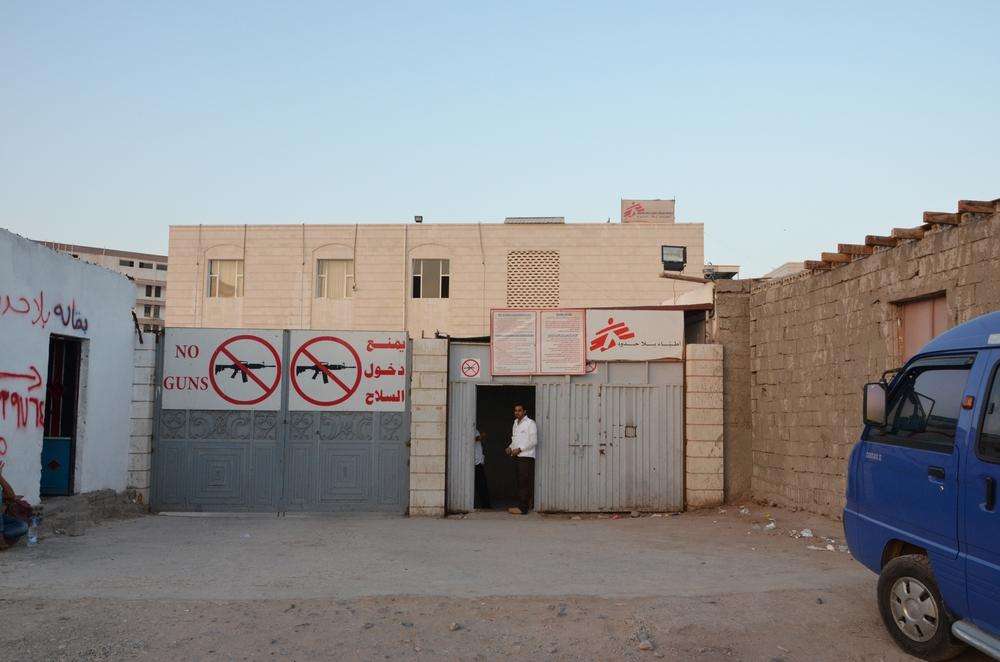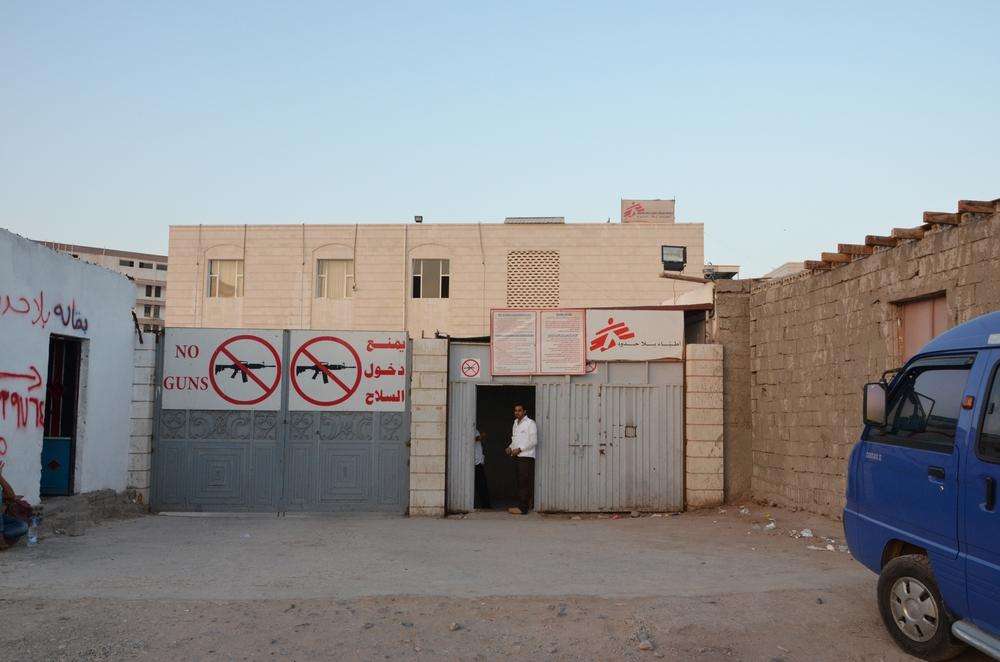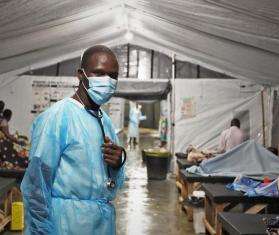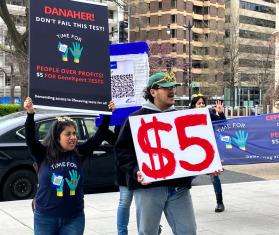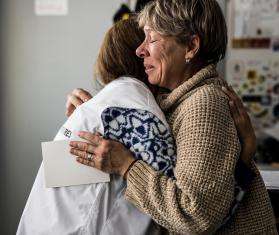The conflict in Yemen currently has the country divided between the Houthi movement, supported by former president Saleh, which controls the north of the country (including the capital Sana’a) and continues its southward advance, and an anti-Houthi coalition based mainly in the South. President Hadi of the transitional government fled to Saudi Arabia in March.
A coalition of mainly Gulf states led by Saudi Arabia started airstrikes against the Houthi on March 26, with the declared aim of stopping the advance of the Houthi and to reinstate President Hadi. The Houthi are seen by Saudi Arabia as a proxy group for Iran. Other countries participating in this Saudi-led coalition against the Houthi are Qatar, Bahrain, Kuwait, UAE, Egypt, Jordan, Morocco, and Sudan. Other countries, including the USA, are providing logistics and intelligence support.
While the political struggle unfolds, civilians are caught in the crossfire. The UN reports that in the month up to April 25 at least 1,080 people have been killed, over 4,350 have been injured, and 150,000 have been displaced, though MSF is unable to confirm this information.
MSF is responding to the needs of civilians affected by violence. There are currently 31 international and 534 Yemeni MSF staff on the ground. Since March 19, over 1,266 war-wounded patients have been treated by MSF. It remains extremely difficult to move within the country to evaluate needs and provide assistance, due to the fighting and the airstrikes. Around 100 tonnes of medical supplies have been sent to Yemen by MSF so far.
Haradh Town (Hajjah Governorate, Northern Yemen)
On March 30, 34 wounded people were brought to the MSF-supported hospital in Haradh after the attack on Al-Mazraq IDP Camp. Between April 21 and April 24 airstrikes and shelling in Haradh district caused 11 deaths and 67 injuries. The 67 wounded patients were treated by MSF medical staff in Haradh public hospital. The latest attack took place on the night of April 24, when several shells hit Haradh town. Large pieces of shrapnel landed less than 30 meters from Haradh public hospital as medical staff received the first wounded. Nine injured arrived at the hospital; two of them died. The attacks have provoked a mass movement of population, with most of Haradh town’s remaining inhabitants abandoning their homes. The majority of staff and patients at the hospital have also fled.
The MSF team has been supporting Haradh hospital in the emergency room and the OT, and providing fuel and water, although it has been forced to evacuate several times .
Aden and the South
Clashes continue in the southern city of Aden, where MSF is running its Emergency Surgical Unit. There are continued street battles as well as shelling from the ground, air, and sea in some areas. There have been electricity, water, and fuel shortages in the city and communications networks are often down.
Since March 19 MSF has received more than 775 injured at the hospital, including more than 550 injured between March 19 and March 31. However, since the beginning of April, the number of patients has decreased to around 10 per day, despite the clashes continuing and increasing in some areas, pointing to difficulties in access to the hospital.
Access is restricted by blocked roads, the threat of fighting and snipers, and ambulances being attacked and hijacked. Seven Ministry of Health ambulances have gone missing. Two Yemeni Red Crescent volunteers were killed on Friday, April 3, while in an ambulance. The MSF team is still facing difficulties going to and from the hospital, and as a result some staff have been living there.
MSF is working with all parties to ask them to respect the hospital, ambulances, and medical staff, and to allow unhindered access to the hospital for patients. MSF has sent out a number of local communications and is using social media to this effect.
The MSF hospital in Aden has been hit by a number of stray bullets, and on April 16 an airstrike less than 500 meters from the hospital led to a number of broken windows and shrapnel was found in the hospital courtyard.
On April 20, an ambulance attempting to refer two patients from a clinic in Lahj to the hospital in Aden was stopped at a checkpoint and turned back; one of the patients later died.
In order to reach patients in areas of intense fighting, MSF has been supporting an advanced medical post in the Crater area of Aden since April 20. The medical post received 12 wounded in its first two days of operation.
Sana'a
On April 20 a huge explosion in southwest Sana’a caused 574 injuries and 39 deaths, according to the Ministry of Health. The injured were received by at least 10 hospitals in the city, three of which were supported by MSF with donations of dressing kits, drugs, and medical supplies. Psychological support for victims was also provided at one of these hospitals, and 1,000 liters of fuel were donated to another.
There are serious shortages of fuel and prices are increasing. People continue to leave the city. The fuel crisis has escalated to the point that some hospitals can no longer operate.
MSF teams remain vigilant and are monitoring the needs. They are in touch with the Ministry of Health and hospitals in the city, and are providing ER and OT supplies to Al Jumhoori hospital in Sana'a.
The regular HIV project in Sana'a shifted to a contingency plan of distribution of drugs to ensure that people enrolled in the program have access to ARVs, with stocks available for the coming two months.
Amran Governorate
The MSF-run hospital in Khamer town received around 40 injured after airstrikes in Amran governorate. This includes 30 injured who were treated in Khamer on April 15 after an airstrike on the town of Huth. The injured included women and children.
The team is also concerned about people in remote areas of Amran governorate being unable to access the hospital in Khamer due to transport obstacles and shortages of fuel. MSF is seeing fewer patients from Al-Asha and Al-Qafla districts, and the team is particularly concerned for women from these areas with complicated pregnancies.
The team is also assessing the situation of IDPs flowing into the governorate and is ready to respond. IDPs are generally staying with relatives, but there are reports of food shortages. Drinking water is also lacking due to shortages of fuel for the water pumps. There has been no electricity in Khamer for two weeks.
In the town of Huth, patients and staff alike are afraid to go to the MSF-supported health center for fear of bombings.
Ad Dhale Governorate
Since March 19 Qataba and Al Nasser hospitals have received 350 war-wounded patients.
On April 6 MSF received seventeen wounded and three dead in Al Nasser Hospital, and three wounded in Qataba Hospital. On April 19 more than 30 wounded were treated at Al Nasser and Qataba hospitals.
Referrals between Ad-Dhale and other hospitals, including the MSF hospital in Aden, remain extremely difficult.
Other Areas
The MSF team that was evacuated from Haradh is currently in Hudeidah, where they are performing a mass-casualty training for staff at Al Olafi hospital. MSF is also doing water trucking for two IDP camps around 30 kilometers south of Haradh, where around 3,000 displaced people are living.
MSF teams are doing an assessment in two hospitals (Al-Jamhoria and Al-Rawda) in Taiz, where it seems there are significant needs. MSF is also assessing the needs in Saadah governorate and plans to begin supporting Haydan hospital.
Medical Donations
MSF has made donations of medical supplies to hospitals in Sana’a, Aden, Saadah, Abyan, Taiz, and Lahj governorates since the start of the conflict.
In Lahj governorate, MSF donated dressing materials, IV fluids, anesthesia drugs, and oxygen to Habylyn hospital. Teams are planning to send another donation to Habylyn and Yaffa hospital in the coming days, as they are running out of some supplies. Donations were also sent to hospitals in Taiz.
